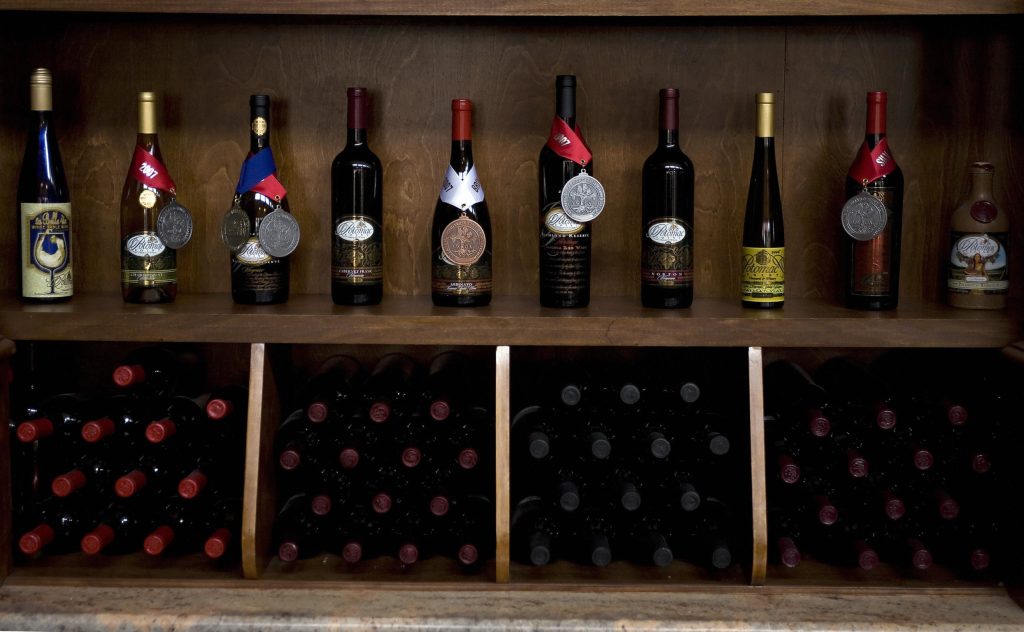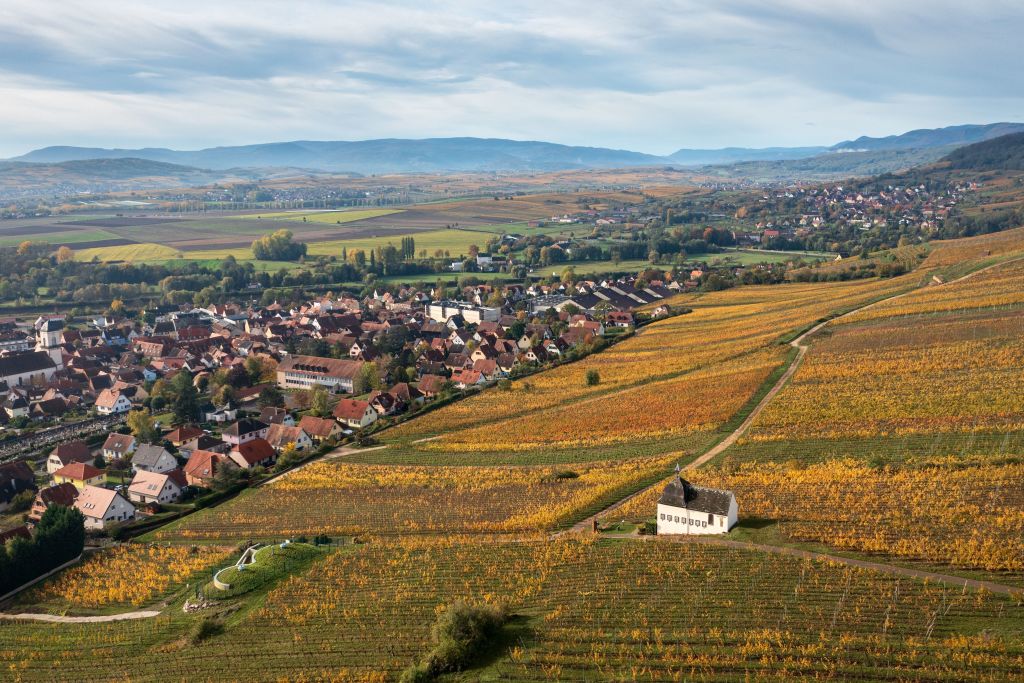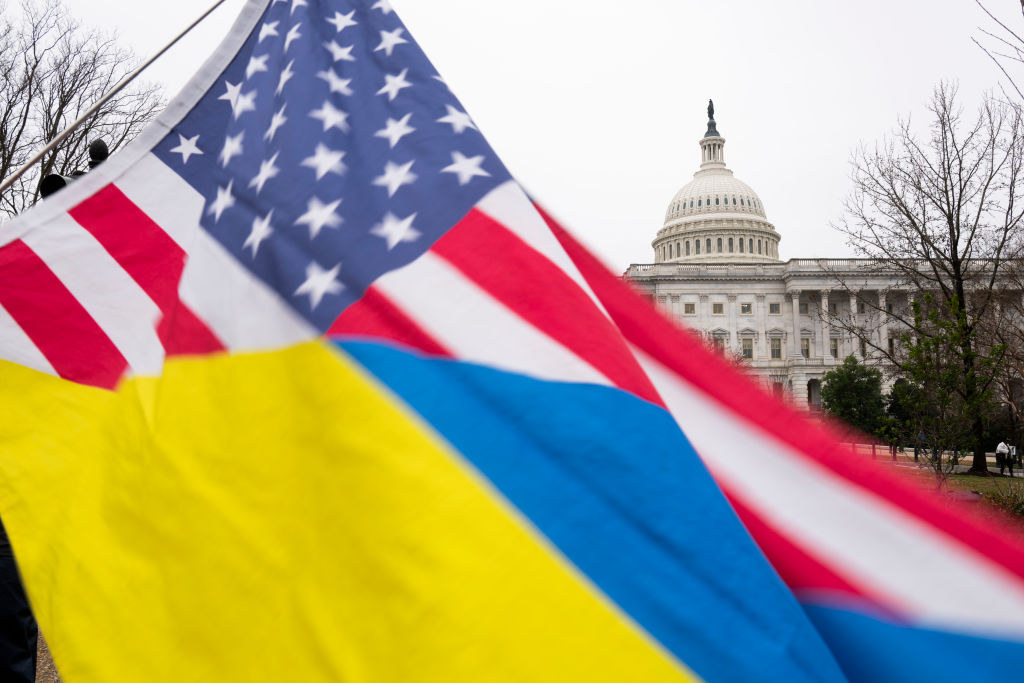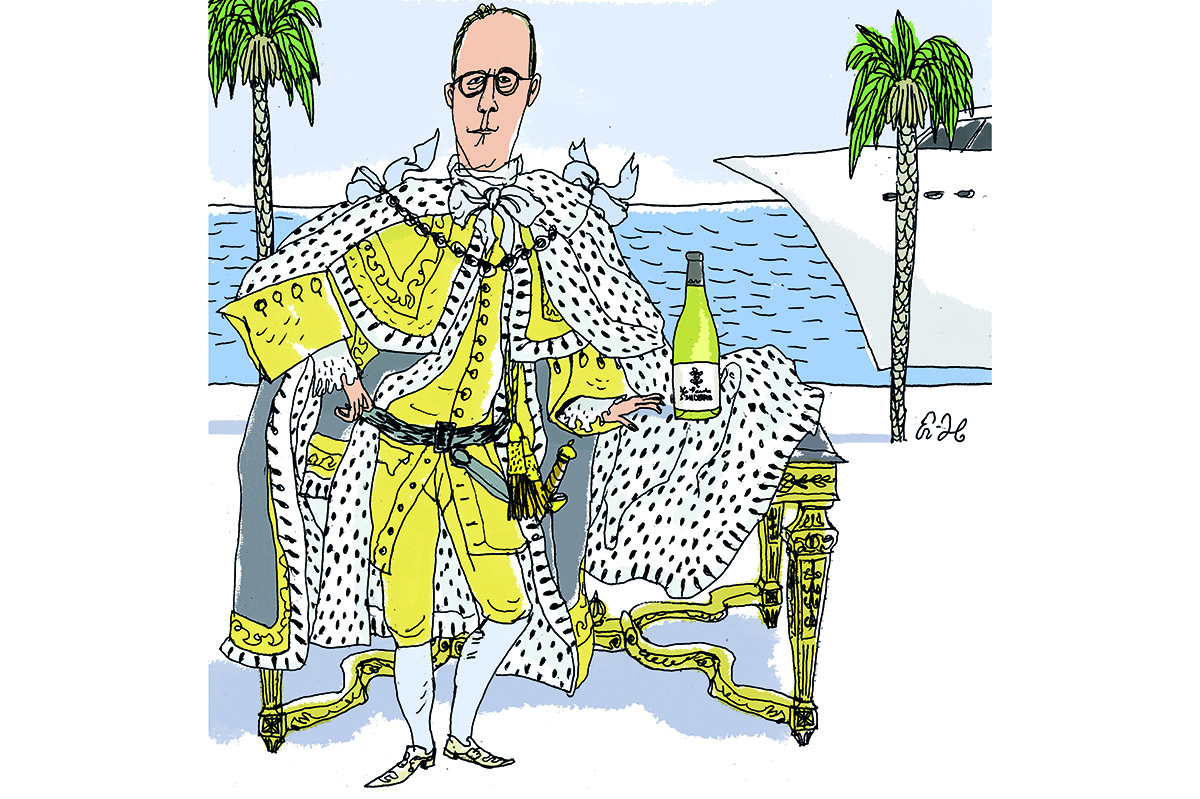This article is in The Spectator’s February 2020 US edition. Subscribe here.
I think it was from the late Roger Scruton, back when he was writing about wine for another magazine, that I learned the importance of being a terroiriste — not, nota bene, a terrorist. That, as Qasem Soleimani learned to his sorrow, is something else entirely.
No, what Sir Roger had in mind was the importance of environment to the production of delicious wine. Terroir means the composition of the soil, yes, but it also means so much more. One dictionary sums it up as the ‘complete natural environment in which a particular wine is produced, including…the soil, topography, and climate’.
That’s a good start, and I instantly thought about terroir when presented with Virginia’s Heritage, a collaborative effort by 16 Virginia wineries to produce a commemorative bottling to celebrate the state’s 400th anniversary at a spot where the ingenuity of man has overcome local adversity to plant, nurture and harvest grapes for the beneficent purpose of making wine.
Readers of, or eavesdroppers on, our former paper of record will know that the New York Times had a splashy antic turn this summer when it published a special fiction issue of its Sunday magazine dedicated to what it called ‘The 1619 Project’, that being the year the first African slaves were brought to the colonies. The idea was that the United States was created not as a crucible of liberty but rather as a ‘slavocracy’. The real reason that the colonists rebelled against Britain, you see, was that they wanted to keep slavery going and were afraid that Britain would make them give it up. As a matter of history, the contention is beneath contempt. But as a transmitter of woke nonsense, it has had sufficient potency to find its way into the curricula of certain credulous school systems.
But I digress. Virginia’s ‘1619 project’ is an altogether more salubrious, not to say palatable enterprise than the sour grapes the New York Times had on offer. As the promotion surrounding this novelty wine pointed out, Virginia was ‘the cradle’ of America’s wine industry. The first load of vines and vintners came over from Europe in 1619 (whether on the boats bringing the slaves was not said). More vines followed in a few years and apparently Virginia has had a thriving wine enterprise ever since.
Who knew? I didn’t. It is sometimes objected that many cooks spoil a meal, but that cannot fairly be said in this case. Virginia’s Heritage, principally a mélange of Merlot and Petit Verdot, leavened with Cabernet, Tannat and a dollop of Cabernet Franc, is agreeable if somewhat incoherent and unbalanced. The people responsible for the wine say it is ‘more like a Spanish Rioja’ than a claret, despite its cépage. The wine does, as its promotion says, feature ‘dark fruit such as wild black cherry and spicy notes of cinnamon’. It also has a certain earthiness (‘pleasant’?) and notes of ‘tobacco’ — this is Virginia, after all — ‘cedar, spice and’… add your favorite wine words here.
Alas, at a suggested price of $59 a bottle, Virginia’s Heritage is unlikely to be a success, though to be honest I’m not sure that success was really the point of this exercise in civic pride.
Yes, Virginia was the ‘cradle’ of the American wine industry. But terroir counts for a lot, and when that industry grew up it set out for more promising climes — some parts of New York, for example, but principally California and Oregon. It is there that American wine cast off its baby clothes and assumed its rightful place among the separate powers of the earth.
I think that even Thomas Jefferson, proud Virginian though he was, would have assented to that adaptation of his words from the Declaration of Independence. After all, he liked wine, and the better it was, the more he liked it.
This article is in The Spectator’s February 2020 US edition. Subscribe here.

























